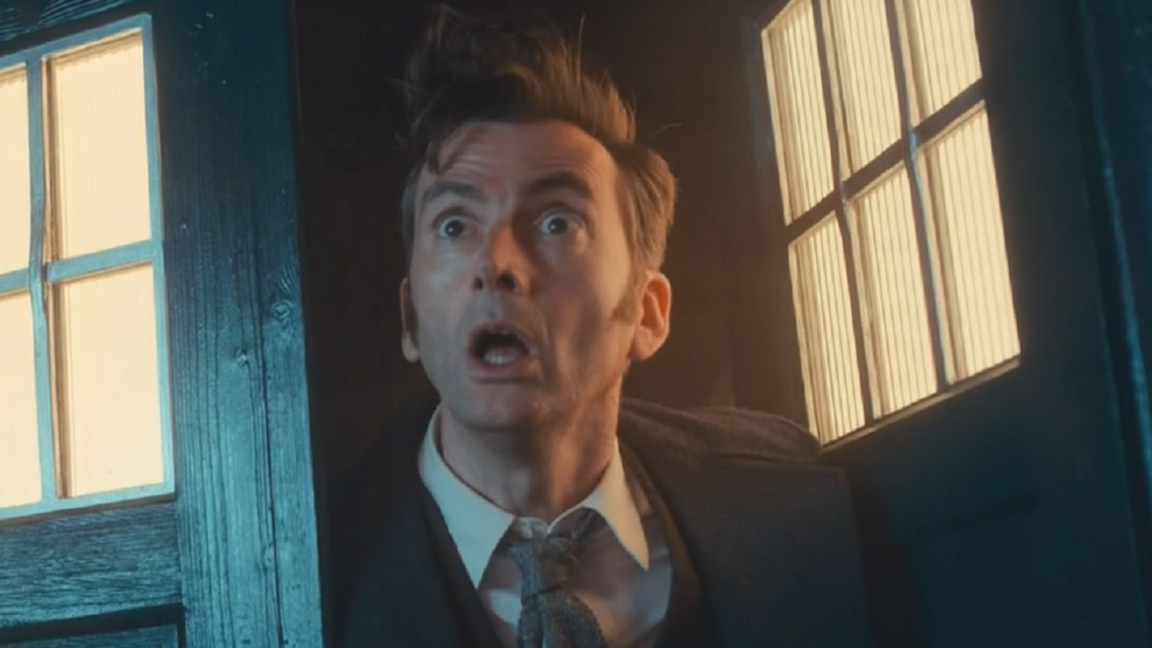Doctor Who: Bedford writer's childhood influenced Daleks
- Published
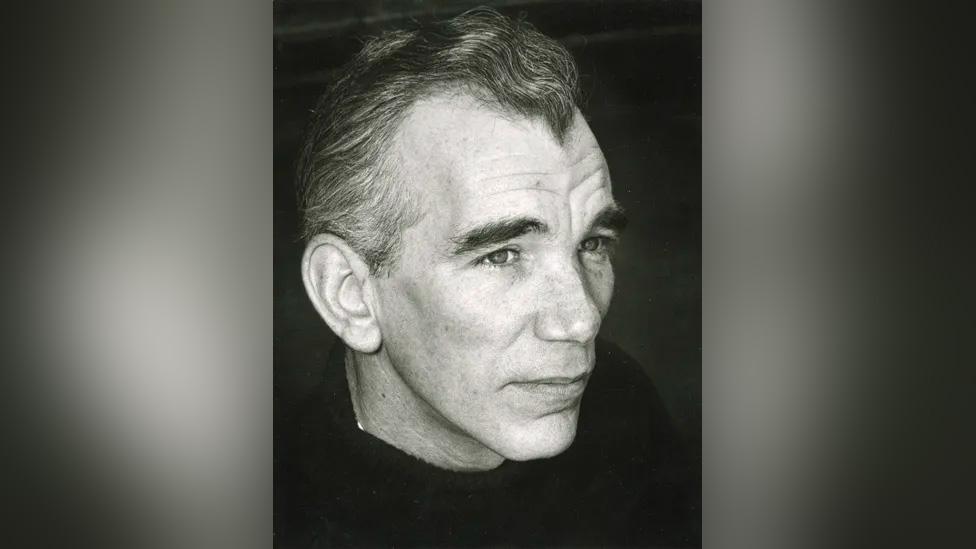
David Whitaker, who passed away in 1980, was Doctor Who's first story editor
A new biography has unveiled fresh details about Doctor Who's first story editor from 1963.
David Whitaker, born in Knebworth, Hertfordshire, commissioned the first Dalek story and might have come up with their "exterminate" catchphrase.
Simon Guerrier began work on the biography in 2015, as little was known about the writer, who died in 1980.
He believes the time Whitaker lived in Bedford influenced the second-ever Dalek story.
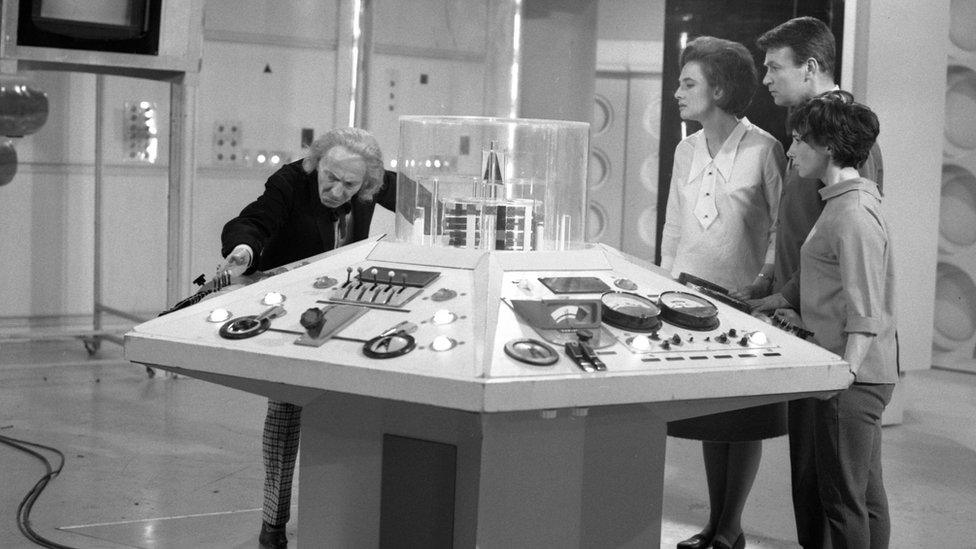
The writer also published the first Doctor Who novelisation, based on the Terry Nation story The Daleks
Whitaker was born in Knebworth in April 1928 in a house that is no longer standing.
The family moved to London in the early 1930s but, as his mother worked in Cheshunt, Hertfordshire, the family was often in the area.
Later in the decade, Whitaker's parents separated and he was sent to live with a nanny in Bedford.
In the 1964 story The Dalek Invasion of Earth, written by Terry Nation, Skaro's terrifying pepper pots invaded earth and set up a mine in Bedfordshire, where a large part of the story is set.
While working on his biography, Mr Guerrier asked himself: "Of all the places that the Daleks could invade, why Bedford?"
In his research, he found the parts of the episode set in London seemed to be influenced by the places Whitaker grew up in the city, and Bedford had a similar influence.
"I think it's because of David's childhood connection, I think Bedford and Cheshunt were a potent part of who he was and what he brought to Doctor Who."
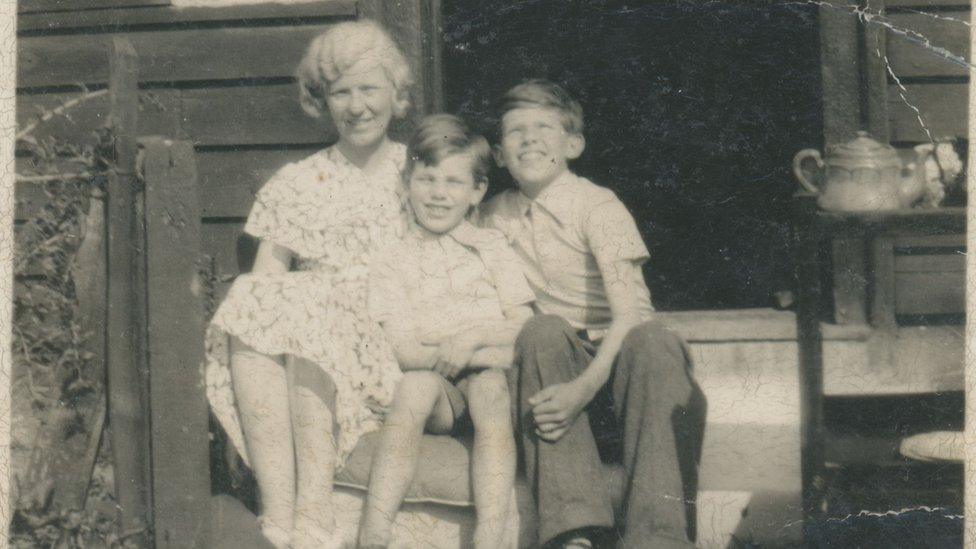
David Whitaker spent time with his family in the village of Nasty
At one point when his mum and dad were separated, David, his elder brother and his mother moved to a cottage in Nasty, Hertfordshire.
Mr Guerrier believes this year spent in the village had a huge impact on the family.
He explained: "I think living out in this cottage, outside London, was a bit of an adventure for them because for a lot of David's childhood, he was ill and living in a sanatorium."
When he was five, Whitaker and his elder brother had lived in the sanatorium after they both contracted tuberculosis.
According to surviving family members who spoke to Mr Guerrier, while in the sanatorium, the two brothers played a game called Doctor What and Doctor Who.
"As far as that family is concerned, David came up with the title Doctor Who; that's a big claim that I couldn't corroborate but I couldn't find anything to disprove it, either.
"There's a gap in the paper trail, so it's perfectly possible he put that name forward," the biographer said.
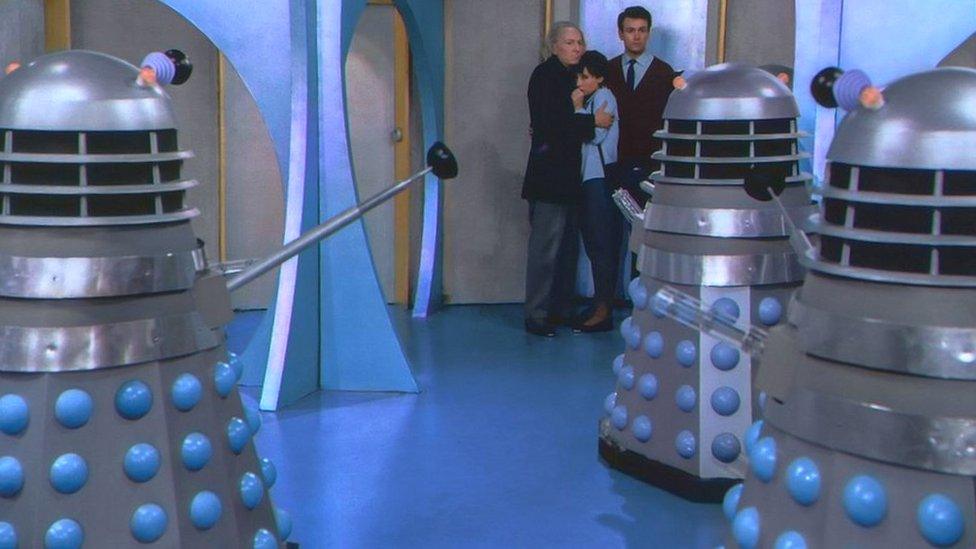
A colour version of The Daleks with a shorter runtime has been created to celebrate the show's 60th anniversary
The first Dalek story (called The Daleks) was written by Welsh writer Terry Nation, commissioned by Whitaker.
The story is being broadcast on BBC Four on Thursday night, in colour of the first time, to celebrate the show's 60th anniversary.
Whitaker was told by head of drama Sydney Newman there would be no "bug-eyed monsters", and Newman was appalled at the script for The Daleks.
The serial nearly failed to make it to screen, however Whitaker and producer Verity Lambert stood their ground and the episode was a huge success.
"If they hadn't done that, I don't think Doctor Who would've survived, as the Daleks are what really made it," said Mr Guerrier.

David Whitaker married Coronation Street actress June Barry in the summer of 1963
In the new biography, the author believes there is some evidence to suggest Whitaker is responsible for the alien's iconic catchphrase.
"In July 1963, Terry Nation wrote a 26-page outline for this story and in that, he used words like executed but he doesn't use the word exterminate," he said.
Whitaker had to write a one-paragraph summary of the plot for his bosses, which is where the word first appears.
While Guerrier insists Nation is "brilliant" and responsible for creating the Daleks, these notes give insight to the collaborative process that made Doctor Who work in 1963.
He explained: "It's possible Terry Nation had mentioned it but the first documented evidence of that word is in something that David wrote."
While the word is then used in The Daleks, it doesn't become a catchphrase until later, likely influenced by children picking up the phrase and using it in playgrounds.
"As a Doctor Who fan, steeped in history of the show, it's quite exciting to find that fact and new connections," he said.
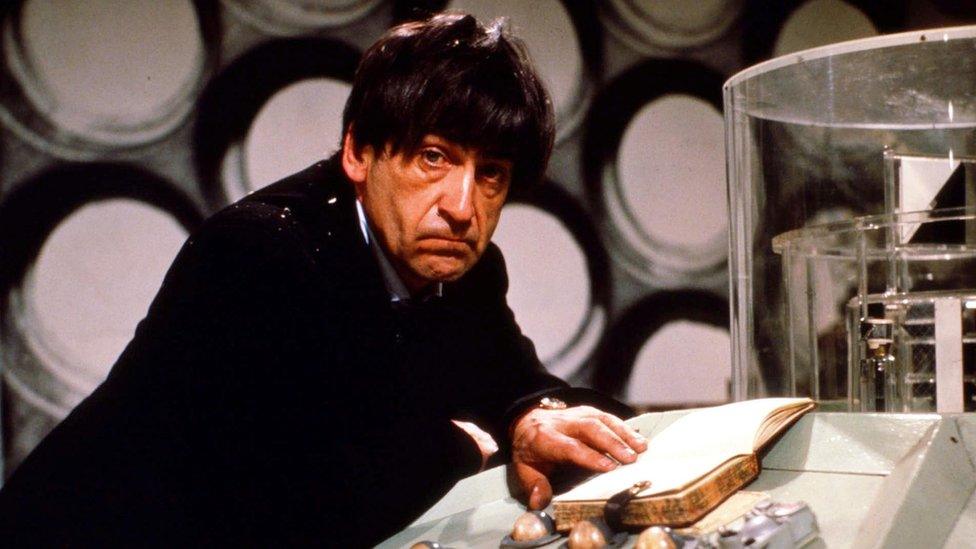
Whitaker wrote many episodes for second doctor Patrick Troughton, including his debut The Power of the Daleks
Whitaker died in 1980 from cancer but had worked on Doctor Who in some capacity right up until his death.
Even after he left the BBC in 1964, he continued to write stories for the show and worked on novelisations of early Doctor Who stories.
He wrote second Doctor Patrick Troughton's first story in 1966, the first to deal with the change of lead actor.
Whitaker is credited as being the first writer to introduce the concept of a living TARDIS and The Doctor's human alias, John Smith.
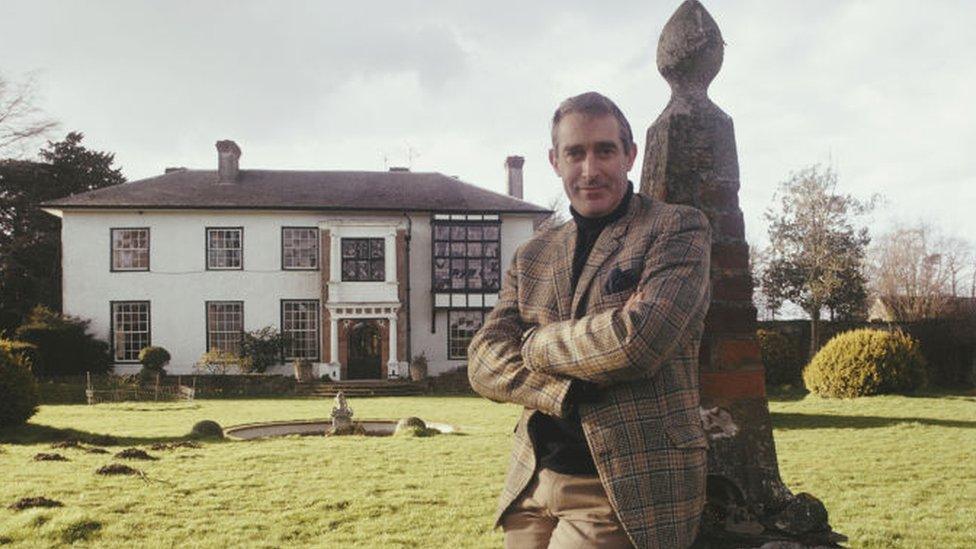
David Whitaker commissioned Dalek creator Terry Nation to write for Doctor Who
As Doctor Who Magazine launched in 1979, then known as Doctor Who Weekly, there was not enough time to interview Whitaker.
In a 1978 letter a to a fan, Whitaker took little credit for the show's success but instead praised others, such as actor William Hartnell, director Waris Hussein and producer Verity Lambert.
In the letter, sent during the Tom Baker years, he said he was "delighted to initiate Doctor Who for the BBC and it is a great pleasure to see it still being so successful."
His niece, Melanie Whitaker, still lives in Bedfordshire and fondly remembers her uncle buying her a TV set in 1963 so she could watch the first episode.
She said: "He was a highly charismatic person, he was funny and clever, and have a very deep voice. He was a raconteur and marvellous storyteller."

Follow East of England news on Facebook, external, Instagram, external and X, external. Got a story? Email eastofenglandnews@bbc.co.uk, external or WhatsApp 0800 169 1830
Related topics
- Published23 November 2023
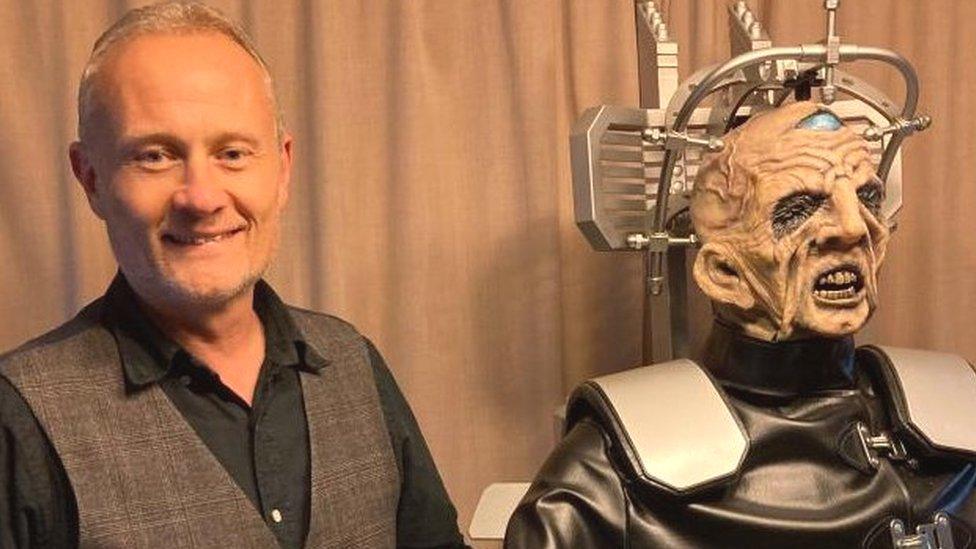
- Published23 November 2023

- Published20 November 2023
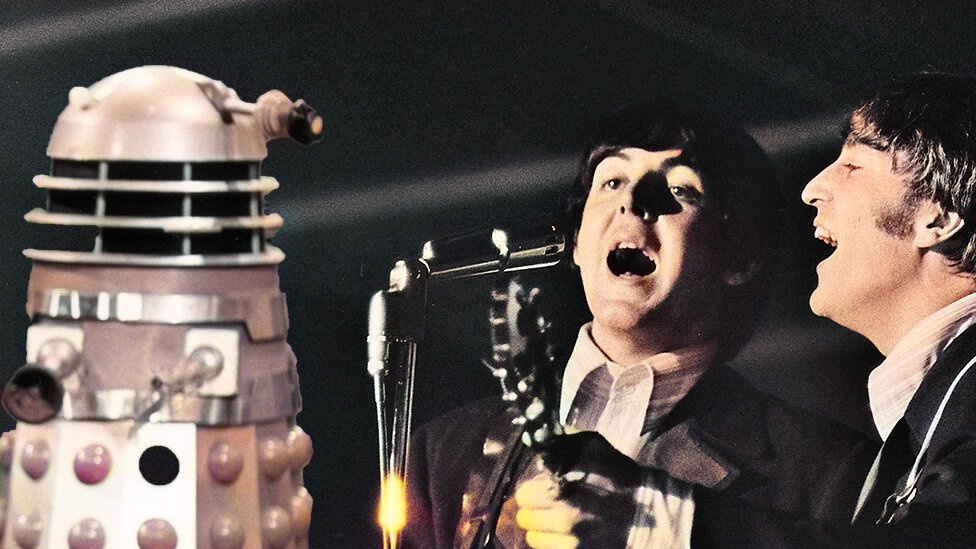
- Published17 November 2023

- Published17 November 2023
